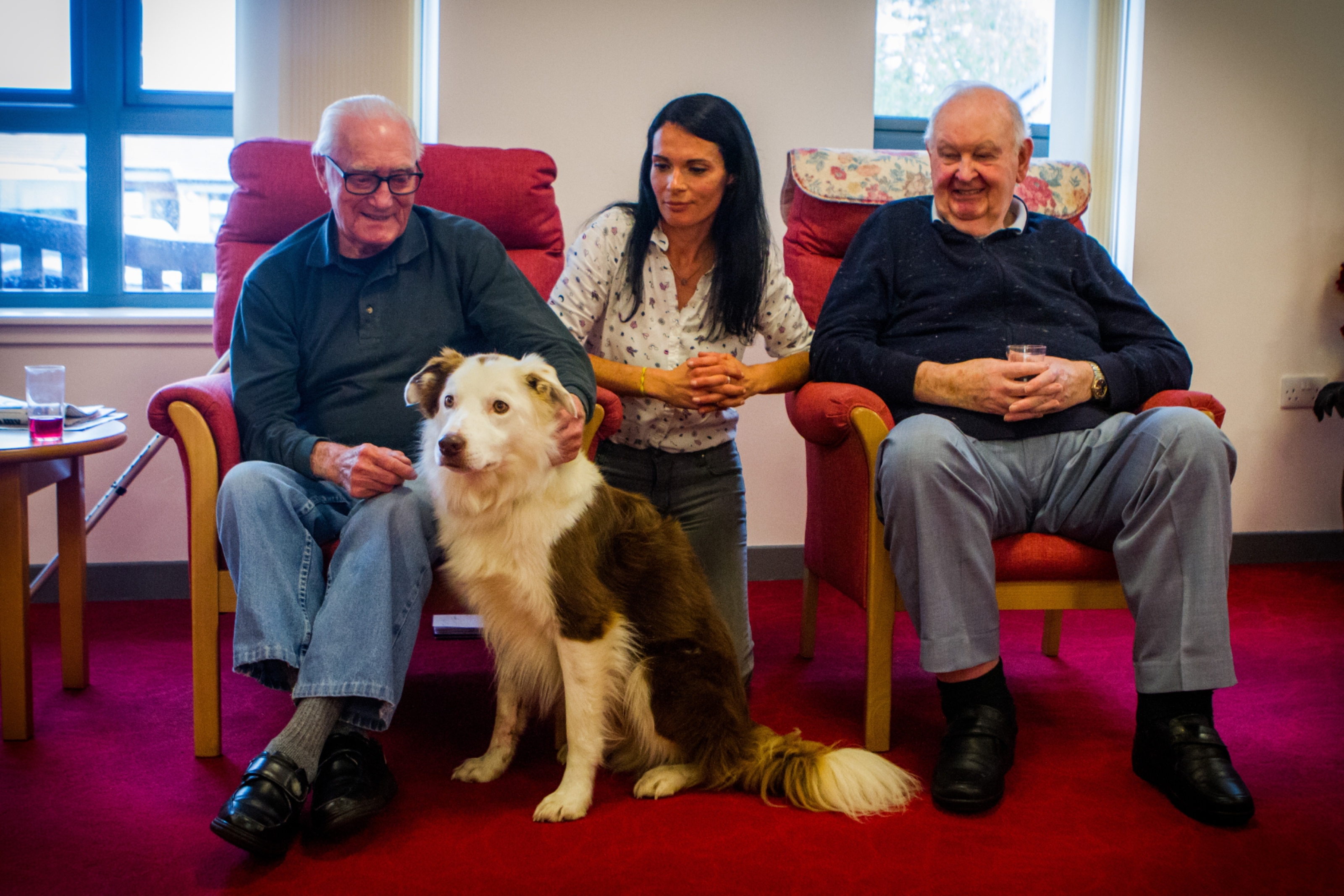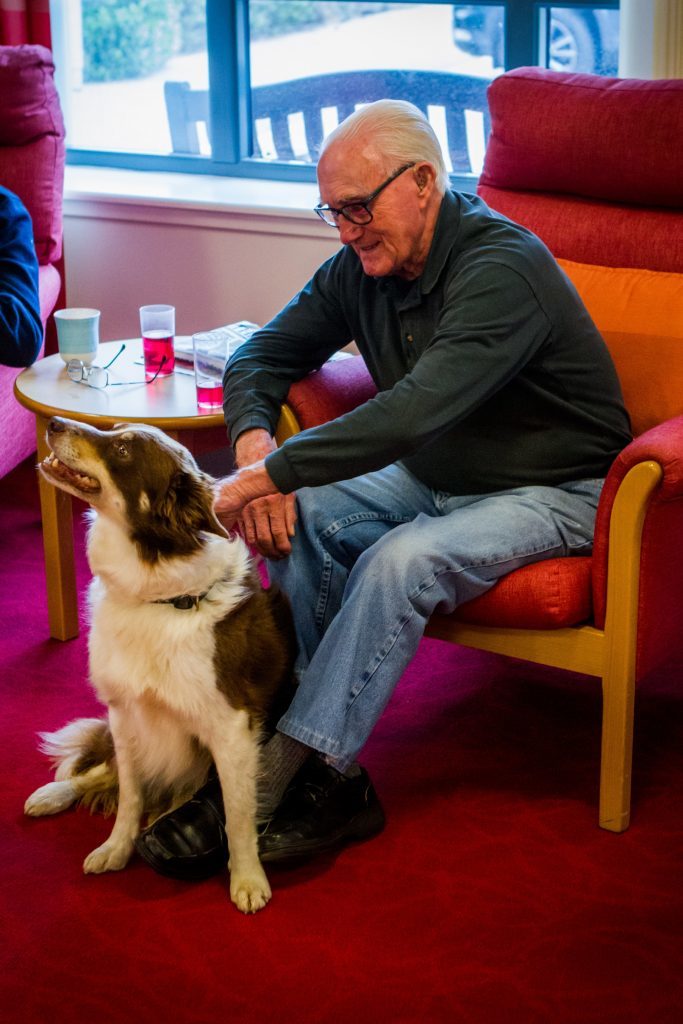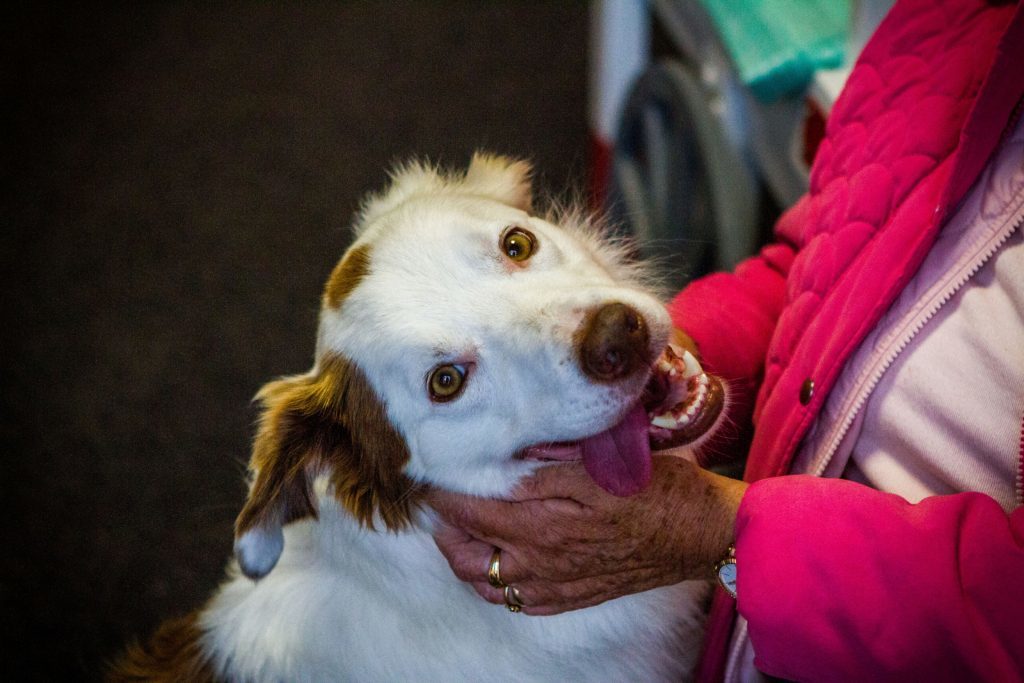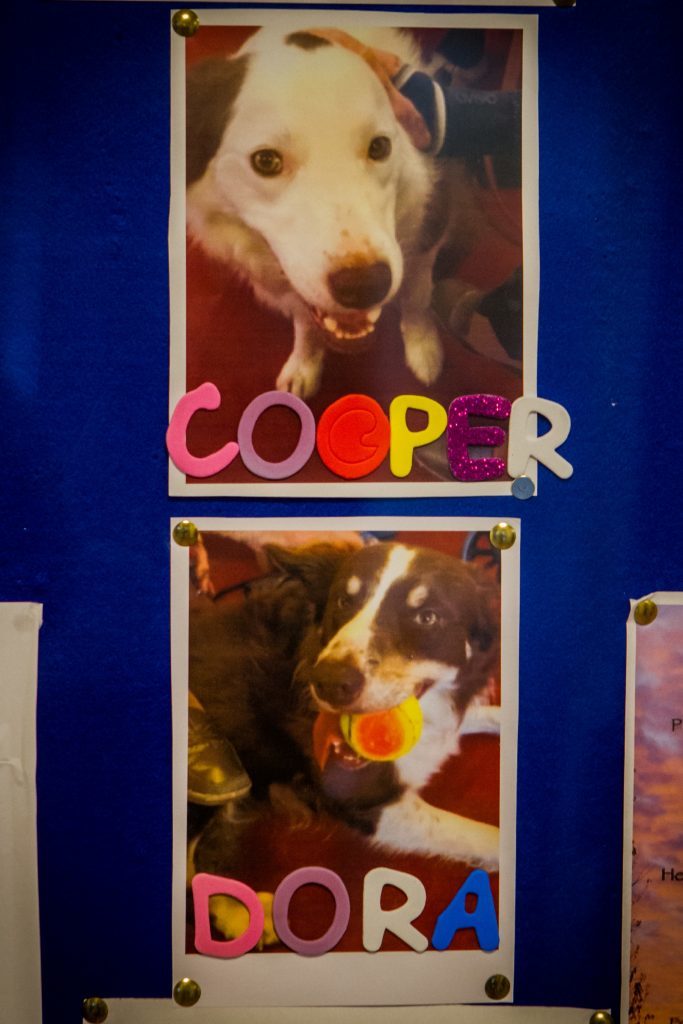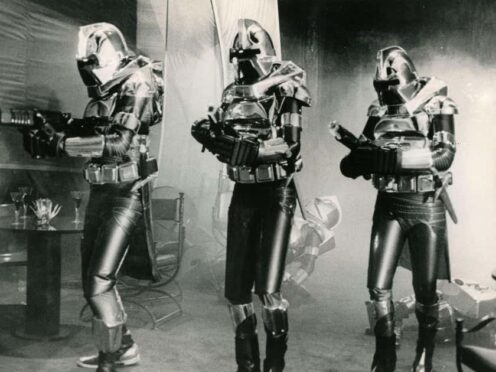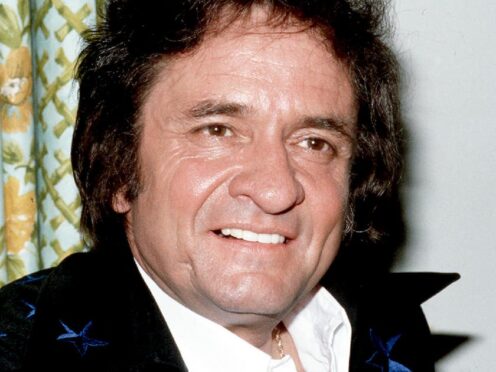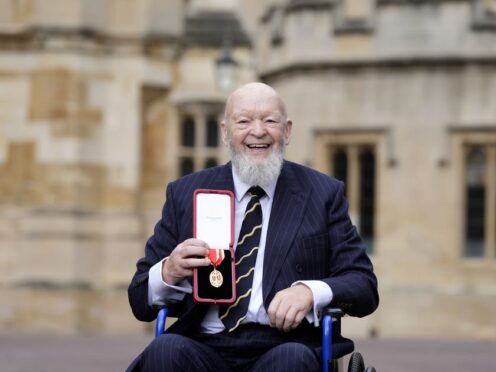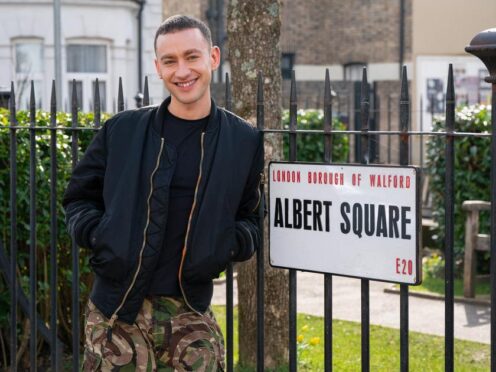Therapets offer a little four-legged therapy and companionship to animal lovers who aren’t able to care for a pet full-time. Gayle Ritchie heads to a care centre with two Border Collies and their owner.
With their soft, strokeable fur, bright, inquisitive eyes and eagerness to please, it’s impossible to resist petting Cooper and Dora.
Outgoing and sociable, the dogs possess a great affinity with people, and boast all the qualities of model Therapets.
The Border Collies visit elderly people – some who have dementia – at Kinloch Care Centre in Carnoustie with their owner, Kerry Roberts, once a week.
As soon as they step into their surroundings, heads turn and faces light up with joy and the dogs adapt, standing or sitting peacefully while they are stroked, and gazing into fond faces.
Just a few minutes of stroking the dogs helps people feel less anxious and they’re soon enveloped by a sense of calm.
The level of cortisol, a hormone associated with stress, is lowered, and the production of serotonin, a chemical associated with wellbeing, is increased.
Betty Wynne, 74, tells me she adores Cooper and Dora and whispers in my ear that she might “slip out the door with them” some day!
“They make you feel so good when they come up beside you,” she beams.
“They’re such loving dogs, so beautiful and friendly. I used to have Westies, and it’s great to have these gorgeous Collies to pet.”
The dogs spend a couple of hours at the centre, being stroked, cuddled, and fetching balls.
It’s clear they love the experience as much as their fans.
Retired Tayside Police inspector Bill Braithwaite tells me he loves the dogs for their “couthy nature”.
“They’re just a friend to everyone and they’re nice to stroke,” says the 76-year-old.
Bert Symmers, 88, is a fan of Border Collies – “they’re very intelligent” – even though he used to breed toy poodles.
“Seeing them come in is the highlight of the day,” says the retired tree surgeon.
Arthur McConnell, 74, used to have two Border Collies of his own, so seeing Cora and Cooper brings back fond memories.
As the dogs wander through the room, I chat to their owner, Kerry.
The dental hygienist takes time out from work to bring six-year-old Cooper, and Dora, seven, to the care centre.
“We’ve been coming for just over two years and the effect the dogs can have on people is huge,” she says.
“They’re very comforting and calming and they know how to behave around different people.
“If a resident is panicked, frightened or confused, the dogs sense it, and they’ll just sit and be calm.
“The dogs absolutely love it, especially Dora, who adores all the attention.”
Social care officer Kelly Begg tells me the dogs – which have the softest, silkiest fur I’ve ever stroked – make a huge difference to people’s lives.
“They make people happy,” she says. “There’s one lady in particular who’s a different person when the dogs come in.
“Dementia affects everyone differently but this lady can be quite vocal and gets fed-up and shouts that she wants to go home, but that changes when the dogs visit. She just loves them.”
Norma Murray, Tayside organiser for Canine Concern Scotland Therapet Scheme, says dogs are assessed and approved for temperament and suitability before being accepted. They are not considered until they are at least a year old.
“Dogs come in all breeds and sizes – we’ve got everything from a Papillon to a Great Dane – but they must have a calm, steady temperament and shouldn’t bark unexpectedly.
“They also need to be happy being touched all over and walk on the lead.”
Dogs are good for us in so many ways.
And sometimes, they can bring about small miracles. Those reluctant to interact have been known to magically come to life at the appearance of a dog, whether in a ward, or in a school.
Sadly, for some residents or patients, Therapets are their only visitors. The fact they’re encouraged to regard doggy visitors as their own is a fantastic gift.
info
There are more than 800 Therapet volunteers across Scotland but organisers are desperate for more.
Volunteers need to be willing to make a regular commitment to visit, even if just once a month, because residents and patients look forward to them, and are disappointed if they suddenly stop.
There’s no charge for the service as fundraising via Canine Concern Scotland (CCS) keeps it active.
CCS also runs Reading with Dogs, a scheme aimed at children, while Paws Against Stress, is run for students in colleagues and universities prior to exams.
Contact www.canineconcernscotland.org.uk for more details.
